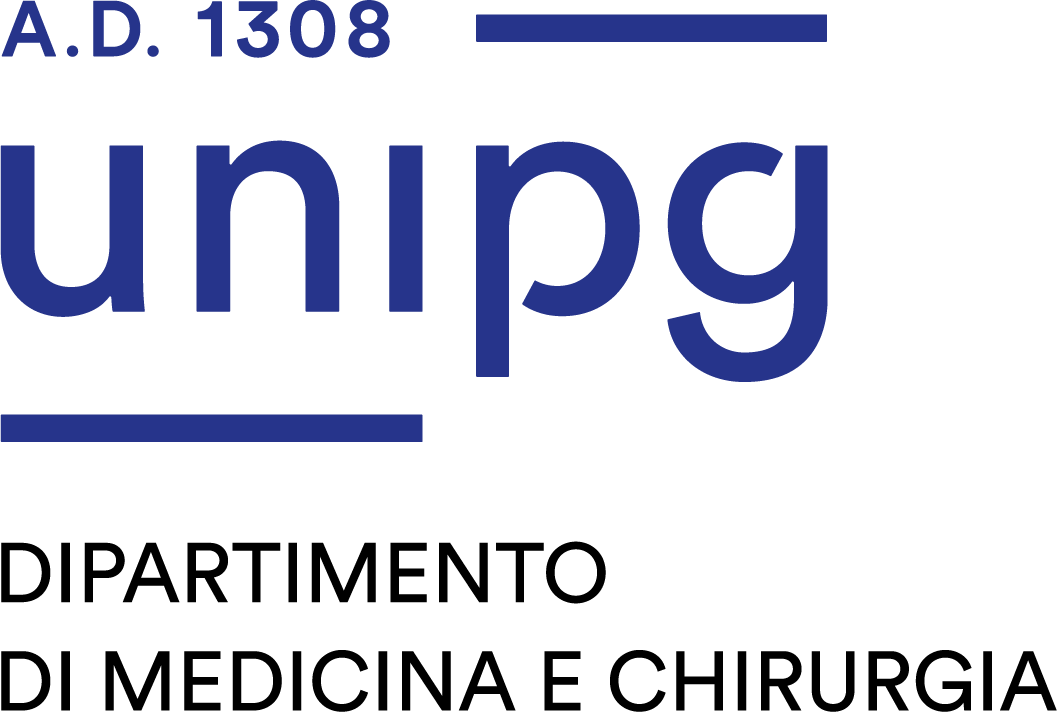- Details
- Written by Andrielli Gianluca
- Foreign mission form in Extra European/EU countries (Attached A)
- Code of ethics and conduct of the University of Perugia
- University regulations for PhD courses
- Missions module
- Request for increase for stay abroad
Link to the University Bioethics Committee
https://www.unipg.it/ateneo/organizzazione/organi-consultivi-e-di-garanzia/comitato-universitario-di-bioetica
Link to the Regional Ethics Committee - CER Umbria
https:https://www.ospedale.perugia.it/strutture/comitato-etico-regionale-cer-umbria
- Details
- Written by Andrielli Gianluca
PhD Programme in Medicine and Translational Surgery
The general aim of the Doctoral Course in Translational Medicine and Surgery is to provide PhD students with a thorough theoretical and practical preparation in translational research.
Translational research aims to transfer the results of basic research into useful clinical applications. It can be defined as all research activities which include:
- basic scientific studies defining the biological effects of treatments in humans;
- investigations in humans that delineate the biology of the disorder and provide the scientific foundation for the development or improvement of new therapies;
- pre-clinical or animal model studies conducted with the aim of improving clinical therapies;
- studies aimed at allowing an adequate development of a product for clinical use according to the various phases of the registration process.
Translational research has been identified as one of the fundamental strategic objectives in the biomedical research field of the European Union in the H2020 program, where the emphasis is placed precisely on the importance of transforming fundamental discoveries into clinical applications.
Disease mechanisms are studied in their molecular, anatomical and functional components looking for mechanisms common to different expressions of wide spread disorders such as cardiovascular, endocrine-metabolic, infectious and disorders of aging, such as inflammation, oxidative stress , endothelial dysfunction, autoimmunity.
The disease mechanisms mentioned above also come into play in the main pathologies of surgical interest, therefore an innovative approach to the surgical problems of daily clinical practice requires the use of a translational surgical research approach.
Training program:
The training course is divided into 3 years.
The first year is dedicated to basic didactic activities according to a specific program of lessons which includes frontal lessons and seminar cycles held by internal and external teachers of the Doctoral faculty alongside an intensive specific laboratory activity.
To these courses others are added on topics common to all the Doctoral courses of the University of Perugia.
The second year provides for an intense research and laboratory activity, supported by a continuous updating of the topics of interest through didactic activities, literature study and participation in national and international conferences in which doctoral students are encouraged to present their research results.
The third year includes, in addition to research and continuous updating, the preparation of the final experimental thesis.
At the end of each year, doctoral students are required to submit an annual report on the activities carried out and a plan for the following year.
During the three years, it is compulsory for each PhD student to spend a minimum period of 3 months and a maximum of 18 months at a University or private laboratory abroad or at least in an Italian location different from the actual working site.
- Details
- Written by Andrielli Gianluca
PhD Programme in Inflammatoy and Infectious Pathologies, Therapeutical Strategies and Bio-Law
Coordinator: Prof.ssa Roberta Spaccapelo – e-mail: This email address is being protected from spambots. You need JavaScript enabled to view it.
Co-Coordinator: Prof.ssa Francesca Fallarino – e-mail: This email address is being protected from spambots. You need JavaScript enabled to view it.
Infectious diseases are still the major cause of mortality and morbidity throughout the world and their occurrence indicates a failure of the immune system. However, our very existence indicates that the immune system has the potential capacity to cope successfully with these diseases. We need to better understand the fundamental rules that govern microbial pathogenesis, how the immune system usually controls infections, the microbial strategies that occasionally lead to escape from immune control and what happens when the immune system fails and turns against itself.
Ultimately, our ability to tackle these problems depends on attracting the next generation of scientists and providing them with the knowledge and technical skills that will allow them to study infection and immunity in innovative, exciting and productive ways. The aim of the PhD Programme is to train and motivate this new generation of scientists to tackle these problems.
The Department of Experimental Medicine’s PhD course focuses on the biological, immunological, epidemiological, and ecological aspects of viral, bacterial, and protozoan diseases in animals and humans and on the vectors that transmit some of these infectious agents. Research carried out at the department emphasizes basic pathogenic mechanisms that may lead to better diagnostic tools, the development of vaccines and other interventions for the prevention and control of infection and disease, and the identification of new targets for antiviral and antiparasitic drugs.
Members of the department adopt a multidisciplinary approach that includes immunology, microbiology, molecular biology, biochemistry, physiology, genomics, genetics, pathology, pharmacology and public health also through the countless national and international collaborations activated by the PhD members. Infectious and immune-mediated diseases currently under study include malaria, fungal infection (Candida e Aspergillus), viral infection (coronavirus), diabetes, obesity, cancer, haemophilia, cystic fibrosis and autoimmune diseases. Further immunologic studies focus on the genetic regulation of immune response, the interplay between the innate immune system and intestinal microbial communities, the function and regulation of T-cell-derived cytokines and cytokines involved in the regulation of inflammation.
The doctorate is divided into three different but interconnected curricula:
Genomics and genetics of host-pathogen agent relationship: introduces students to recent advances in the biology of infectious diseases and provides background for conducting research on said diseases. The Programme emphasizes molecular biology, immunology, cell biology, genetics and the epidemiology of parasites. Specifically, given the expertise of several of the Doctorate supervisors in the field, great attention is paid to the study of fungi, bacteria, viral and etiologic agents of malaria.
Translational immunometabolism, immunogenetics and immunology: focuses on the interface between immune and metabolic responses in immune diseases as possible important targets for novel therapies. More specifically, given the expertise of several of the Doctorate supervisors in the field, great attention is paid to immunosuppressive enzymes catabolizing amino acids. Moreover, these studies are implemented by understanding the complex trait of immunometabolic genes in infectious and immune diseases.
Ethics, Law and Science: introduces students to a comparative study of technologies and biolaw with regard to ethical issues. In particular, scientific issues will be analysed in relationship to the rules of domestic and supranational law governing them, to protect scientific research and the human person. Furthermore, an in-depth analysis will be dedicated to the management of sensitive data in the research and treatment of diseases, also in light of the new EU Regulation 2016/679 which came into force on 25-5-2018.



